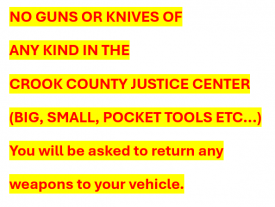Phone Scams
Today phone scams seem to be an everyday occurrence. The “newest” type of phone scam is the “emergency” or “grandparent” phone scam. An individual will call an unsuspecting grandparent claiming to be their grandson or granddaughter. In most cases the caller will claim there is an emergency and request that money be sent (wired) to them immediately. If you receive one of these phone calls there is a good chance a “scammer” is trying to steal your money.
How do these scammers choose you to contact? Sometimes they contact people randomly. They also use marketing lists, telephone listings, and information from social networking sites, obituaries and other sources. Sometimes they hack into people’s email accounts and send messages to everyone in their contact list.
How do these scammers know the names of your friends or relatives? In some cases they don’t. For instance, the scammer may say “Hi Grandma,” hoping that you actually have a grandchild. If you ask, “David, is that you?” the scammer will say “Yes!” Often these crooks will call in the middle of the night and take advantage of the fact that you may not be awake enough to ask more questions and you may not want to disturb other people by calling them to confirm the information. Sometimes the scammers do know the names of your friends or relatives. They can get that information from a variety of sources. Your relatives may be mentioned in an obituary or on a social networking site. Your email contact list may contain the names of friends and relatives.
What do these scammers usually say? The might say something like, “I’m in Canada and I’m trying to get home but my car broke down and I need money right away to get it fixed.” Or they may claim to have been mugged, or been in a car accident, or need money for bail or to pay customs fees to get back into the United States from another country. They may also pose as an attorney or law enforcement official contacting you on behalf of a friend or relative. No matter what the story, they always want you to send money immediately.
If you realize you’ve been scammed, what can you do? These scammers ask you to send money through services such as Western Union and MoneyGram because they can pick it up quickly, in cash. They often use phony IDs, so it’s impossible to trace them. Contact the money transfer service immediately to report the scam. If the money hasn’t been picked up yet, you can retrieve it, but if it has, it’s not like a check that you can stop – the money is gone.
What else can you do to protect yourself? If you get a call or email from someone claiming to know you and asking for help, check to confirm that it’s legitimate before you send any money. Ask some questions that would be hard for an imposter to answer correctly – the name of the person’s pet, for example, or the date of their mother’s birthday. Contact the person who they claim to be directly, at a known number, not the number they might try to give you. If you can’t reach the person, contact someone else – a friend or relative of the person. Don’t send money unless you’re sure it’s the real person you know.
If you receive a phone call or email that is a phone scam you can report it here or contact the Crook County Sheriff’s Office.
Federal Bureau of Investigation Internet Crime Complaint Center IC3 https://www.ic3.gov/

